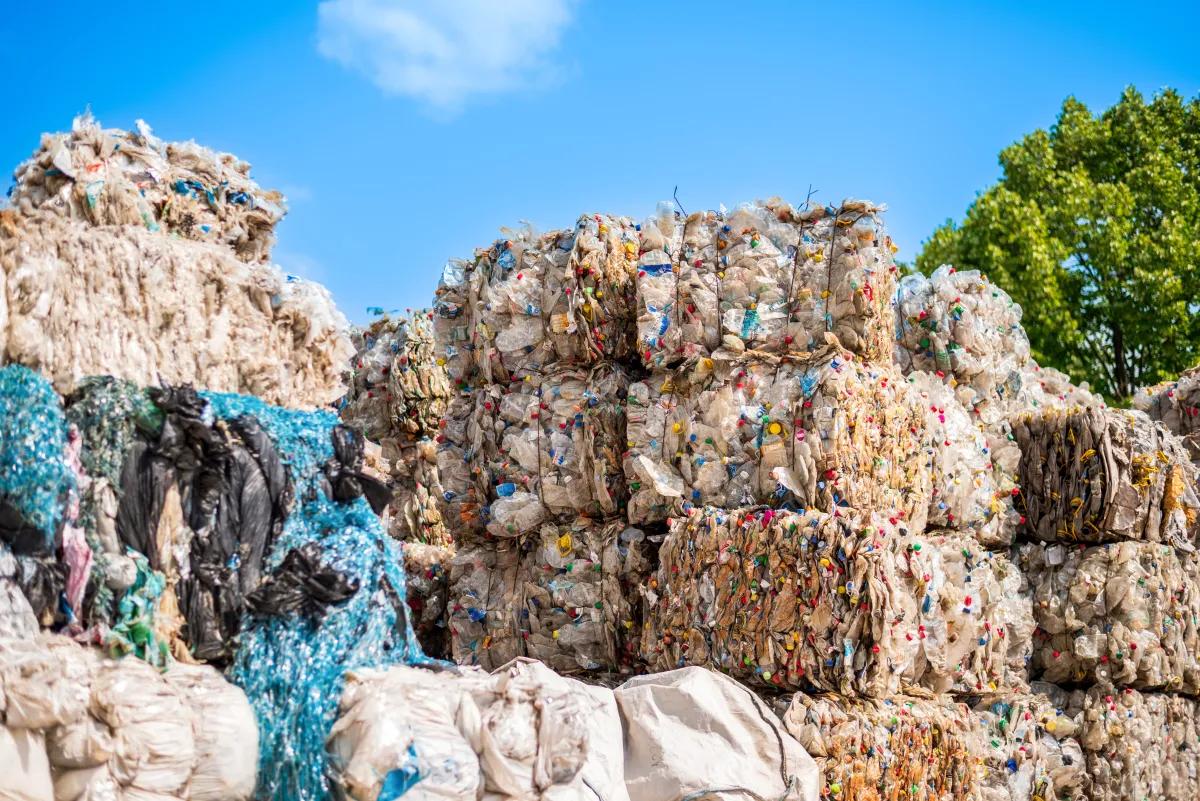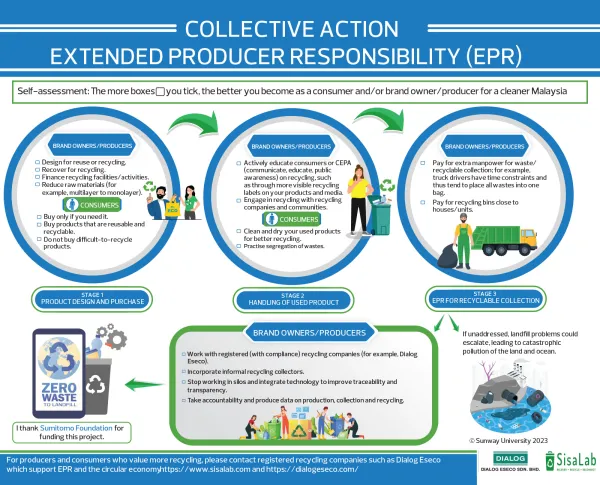EPR: A Solution to the Southeast Asia Landfill Issue?
To tackle the severe problem of landfill waste, Professor Yuka Fujimoto has conducted extensive qualitative research on how the extended producer responsibility (EPR) framework should be implemented through collective action. This framework consists of three stages that clarify the responsible steps of brand owners/producers and consumers.
Stage 1 of EPR is referred to as product design and purchase. In this stage, brand owners and producers must design products with reuse and recycling in mind. They should also attempt to recover products for recycling and fund recycling facilities while aiming to reduce their overall use of raw materials. On the other hand, consumers should buy products based on their needs and avoid products that are difficult to recycle.
Stage 2 looks at the handling of used products. Brand owners and producers should aim to educate consumers on recycling via CEPA (communicate, educate, and public awareness). This can be done by labelling products with tags promoting recycling. This stage also includes collaborations between producers and recycling organisations. Consumers in stage 2 should aim to clean and dry their used products to prepare them for recycling and practice waste segregation.
Stage 3 aims to improve recyclable collection. Here, the main responsibility lies with brand owners and producers. They need to spend extra money to increase the size of the workforce for recyclable collection. An undersized workforce leads to time constraints, which may cause inefficient waste segregation and collection. Brand owners and producers should also invest in placing recycling bins in convenient locations for consumers.
As a whole, the EPR framework is practical. The landfill waste issue can be effectively addressed with cooperation from brand owners, producers and consumers. Many are starting to implement some significant initiatives. For instance, Body Shop and Aesop are brand owners, Greensteps is a community recycling initiator, and Dialog Eseco is a recycling company. They have all set an excellent example for others to follow or collaborate with, by taking some of the steps outlined in the EPR. To support this, every consumer should take individual responsibility by cleaning and drying used products for recycling and segregating waste at home. Professor Yuka strongly urges brand owners to transfer recycling knowledge from their home countries to Malaysia, where they manufacture and sell their products to approximately 34 million potential consumers. This model may also apply to other Southeast Asian nations, such as Indonesia, the Philippines and Myanmar.
Professor Yuka thanks Dr S Sri Umeswara and Ms Pauline Goh for their unwavering support of her project. She hopes that the information uncovered via this research makes a positive impact.
Professor Yuka Fujimoto
Sunway Business School
Email: @email
This article was first published in The Edge, 30 October 2023.





